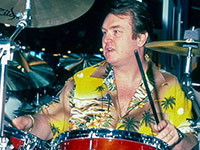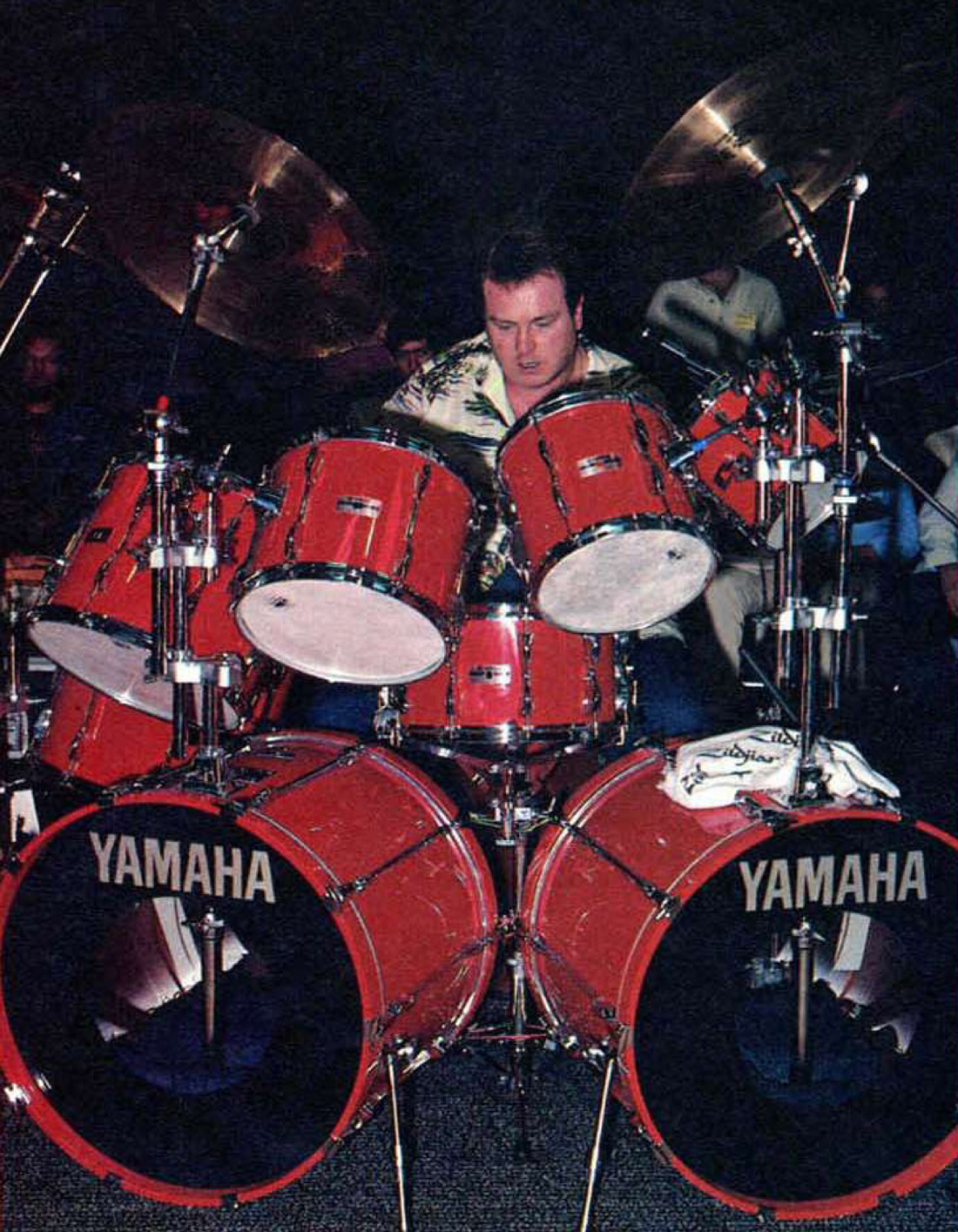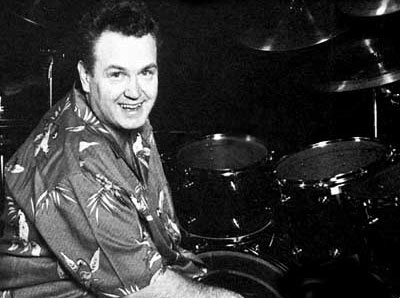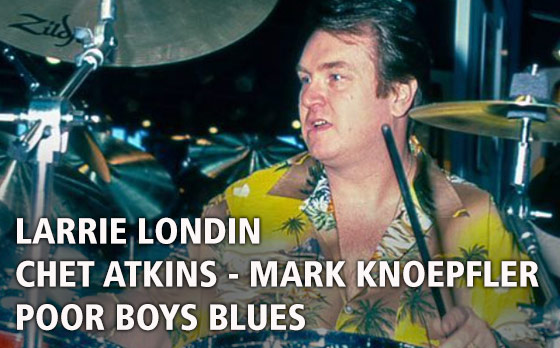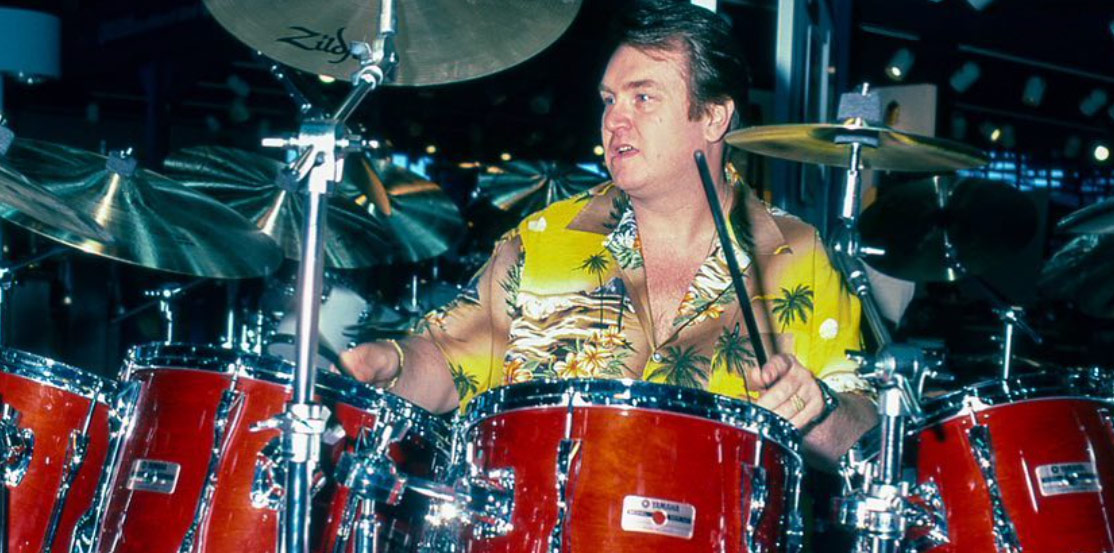
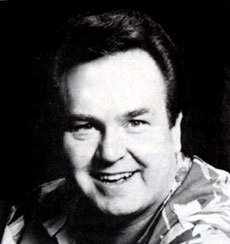
| Larrie Londin |
|
Larrie's resume reads like Who's Who in music. It's impossible to listen to any radio very long before you hear his solid backbeat. He was a real musician's musician and we hope that someday he'll get the widespread recognition he deserves... Larrie Londin (born Ralph Gallant on October 15, 1943 in Norfolk, Virginia, died August 24, 1992 in Nashville, Tennessee) was a drummer who played with a wide range of artists including Elvis Presley, Journey and Steve Perry. With Journey, he played on Raised On Radio. With Steve Perry as a solo artist, he played on Street Talk. Larrie also performed with Elvis Presley on tour during Presley's last years, and can be heard prominently playing with the King on the Madison label's 2007 release of "A New Kind Of Rhythm," a recording of a 1976 Presley concert. He can also be heard on recordings by: Emmylou Harris, Diana Ross, The Supremes, The Temptations, The Four Tops, Martha Reeves, The Vandellas, Smokey Robinson, Joe Tex, Wilson Pickett, Lionel Richie, Jerry Lee Lewis, Boots Randolph, Charlie Pride, Randy Travis, Porter Wagoner, Dolly Parton, B.B. King, Albert Lee, Larry Carlton, Lee Ritenour, England Dan & John Ford Coley, Bobby Bare, Merle Haggard, Hank Snow, Jerry Reed, Rodney Crowell, Rosanne Cash, Don Francisco, Dan Fogelberg, Reba McEntire, KT Oslin, Vince Gill, Ricky Skaggs, Hank Williams, Jr., Chet Atkins, Adrian Belew and Ronnie Milsap. As young men, Larrie and his bassist brother Lonnie were members of The Headliners, among the very few white acts signed to a Motown record label. Two singles were released by the Headliners in the early '60s. By the late '70s, Londin had made Nashville his home, becoming a leading A-team session player, raising a family, and hosting his brother Lonnie for a short time. With his wife, Debbie Gallant, he established D.O.G. Percussion (named for Debbie's initials), the area's first dedicated drum shop. Always promoting innovation in the session business, Londin mentored younger musicians and proposed the first cartage services for Nashville session players. Londin died at 48 in 1992 of a heart attack. |
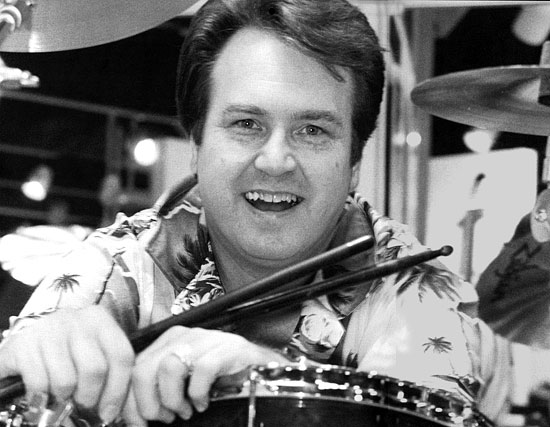 © Lissa Wales
© Lissa Wales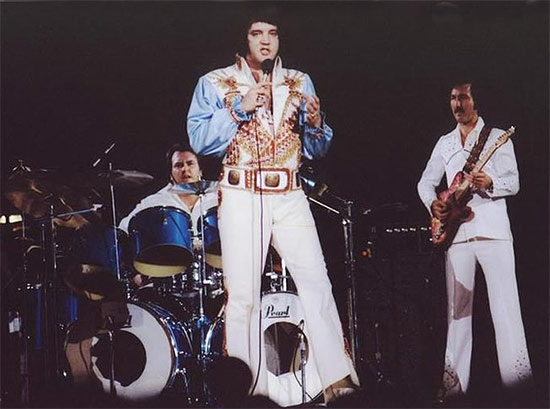 Larrie Londin - Elvis Presley - James Burton
Larrie Londin - Elvis Presley - James Burton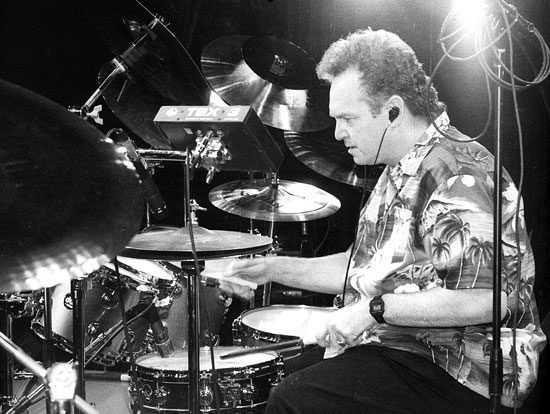
© Lissa Wales
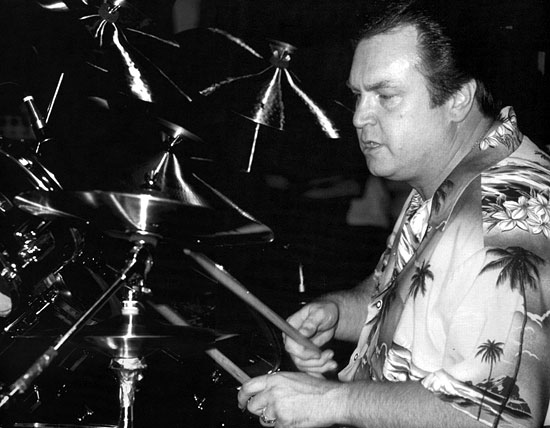
© Lissa Wales
|
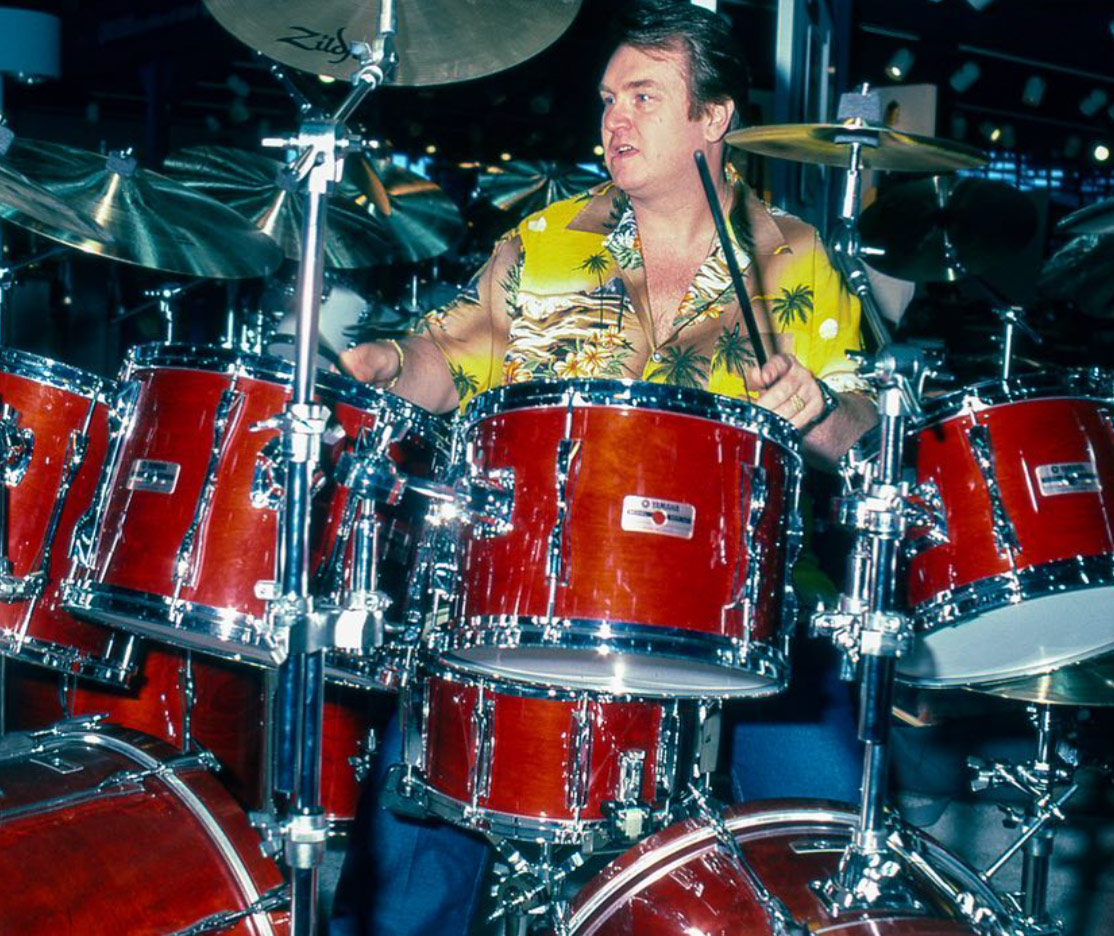
© Lissa Wales
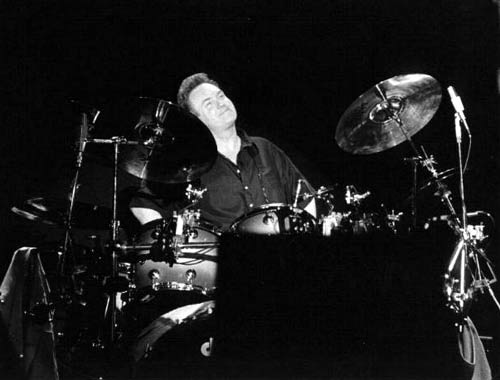
|
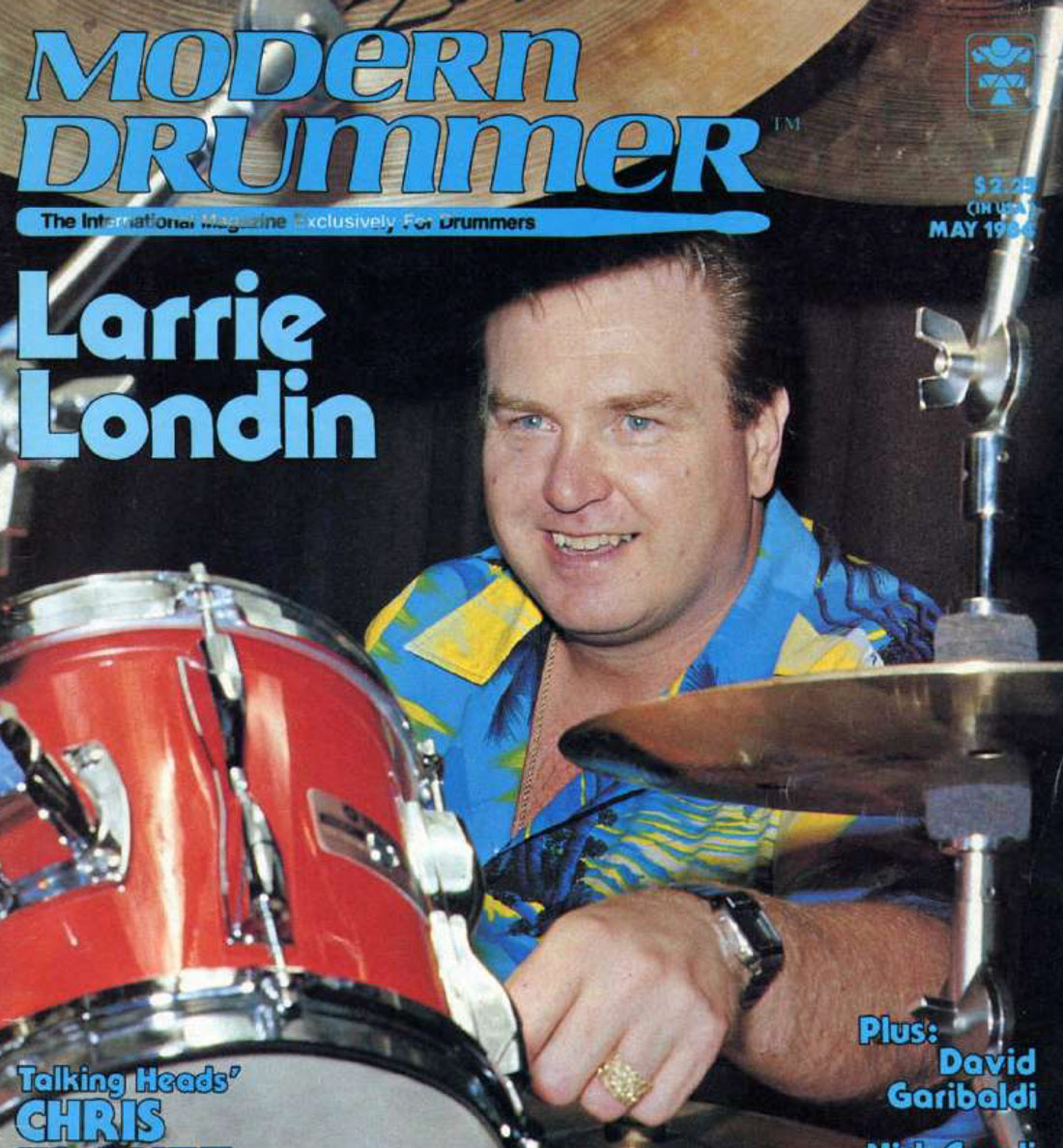
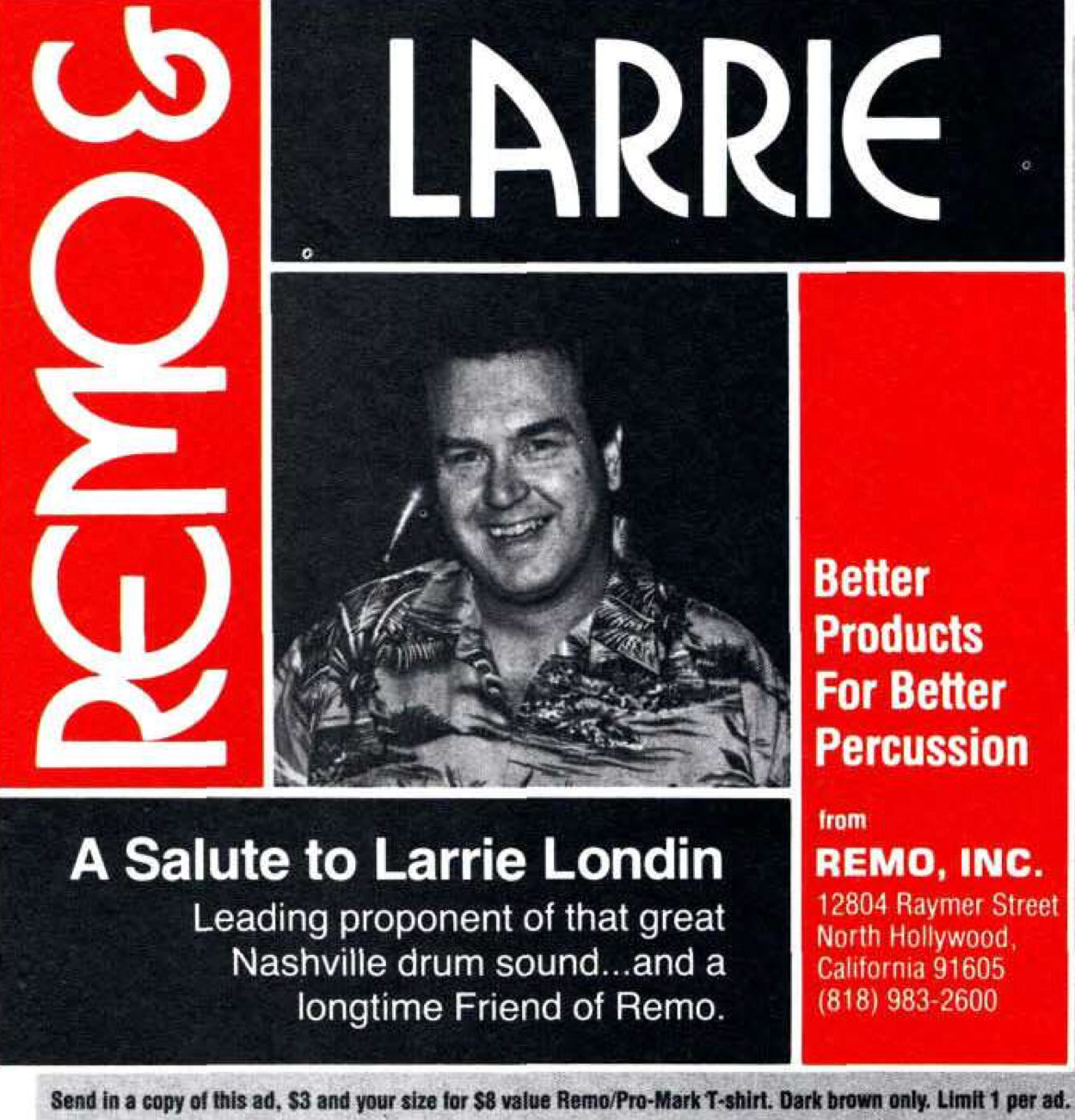
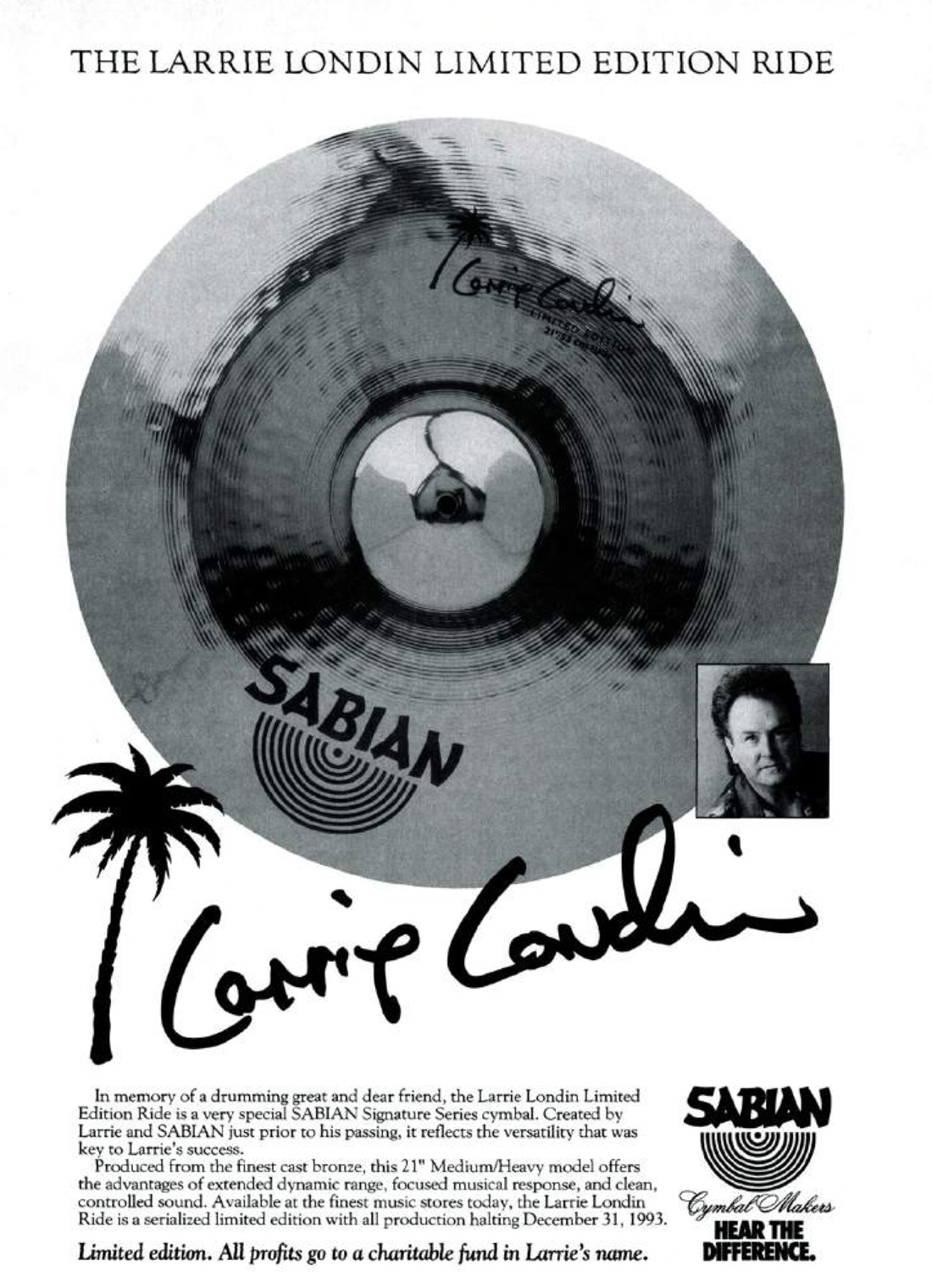
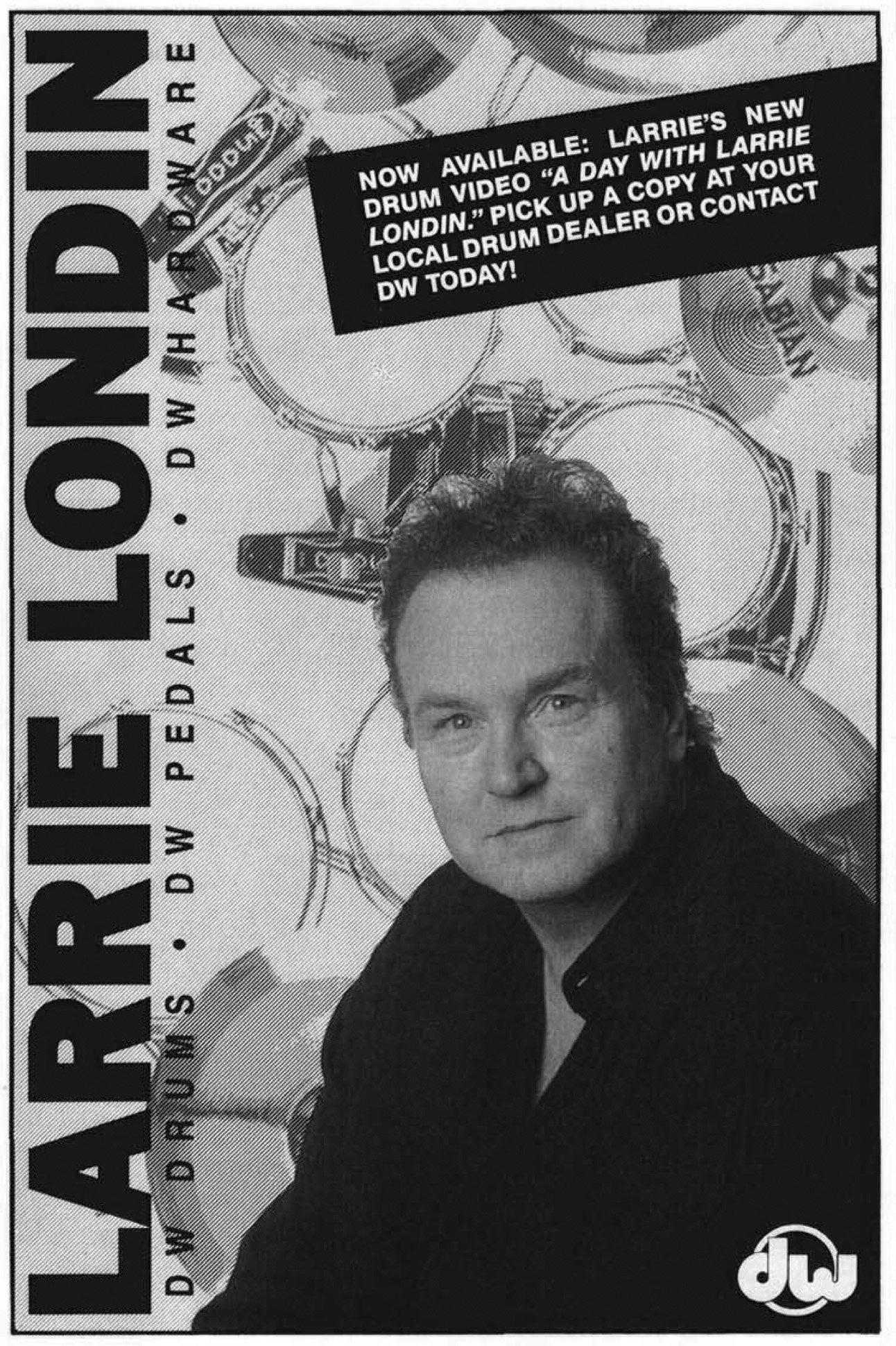
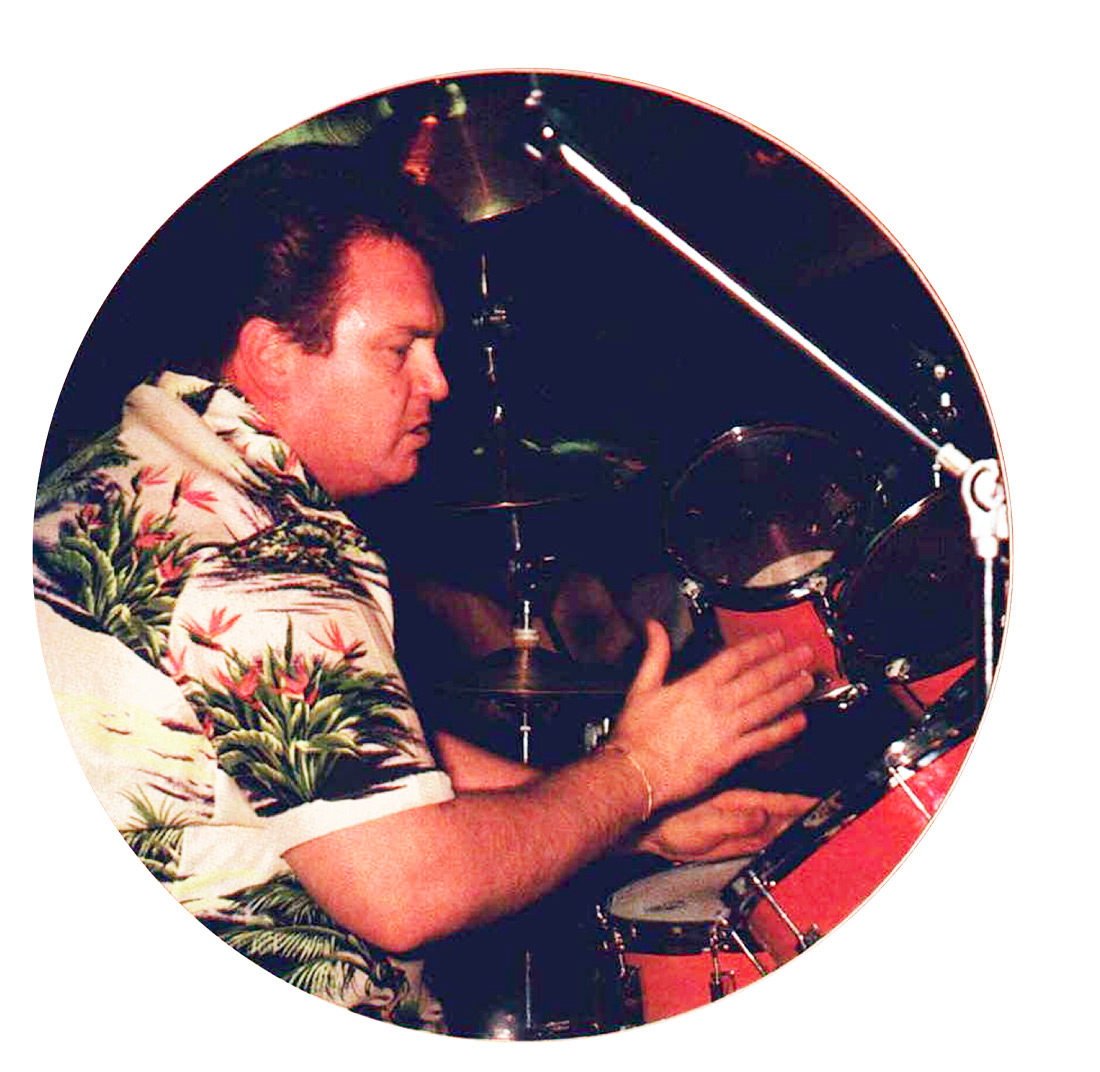
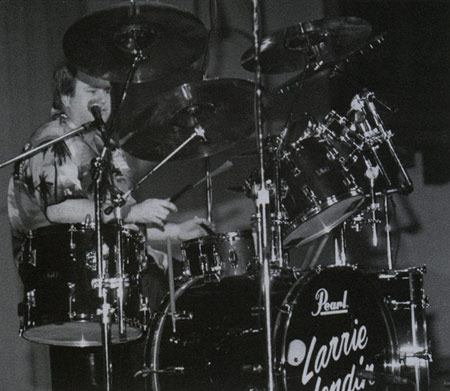
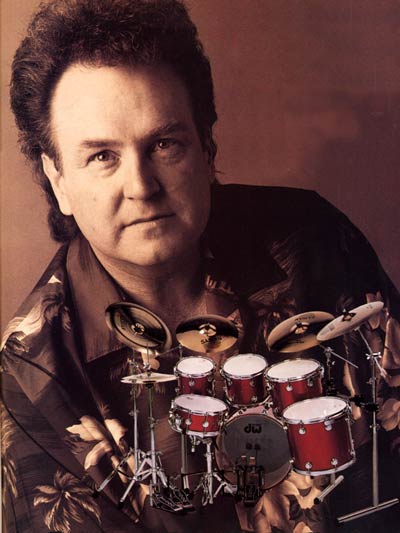
|
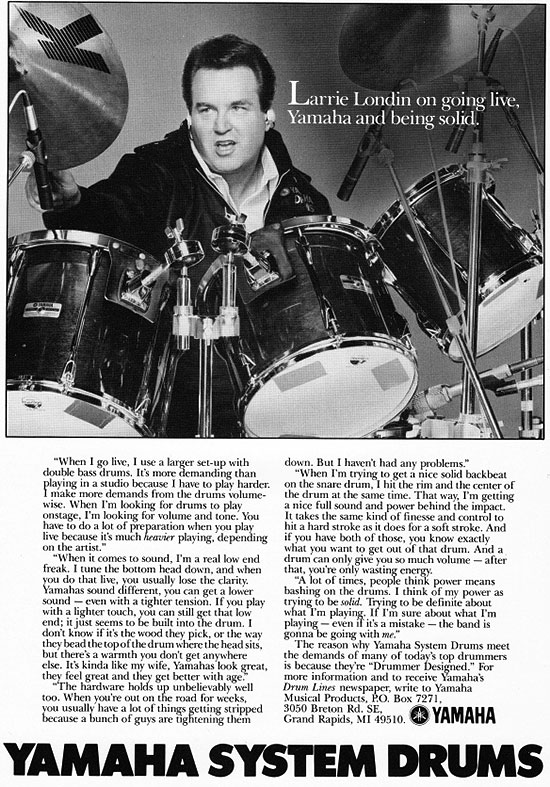
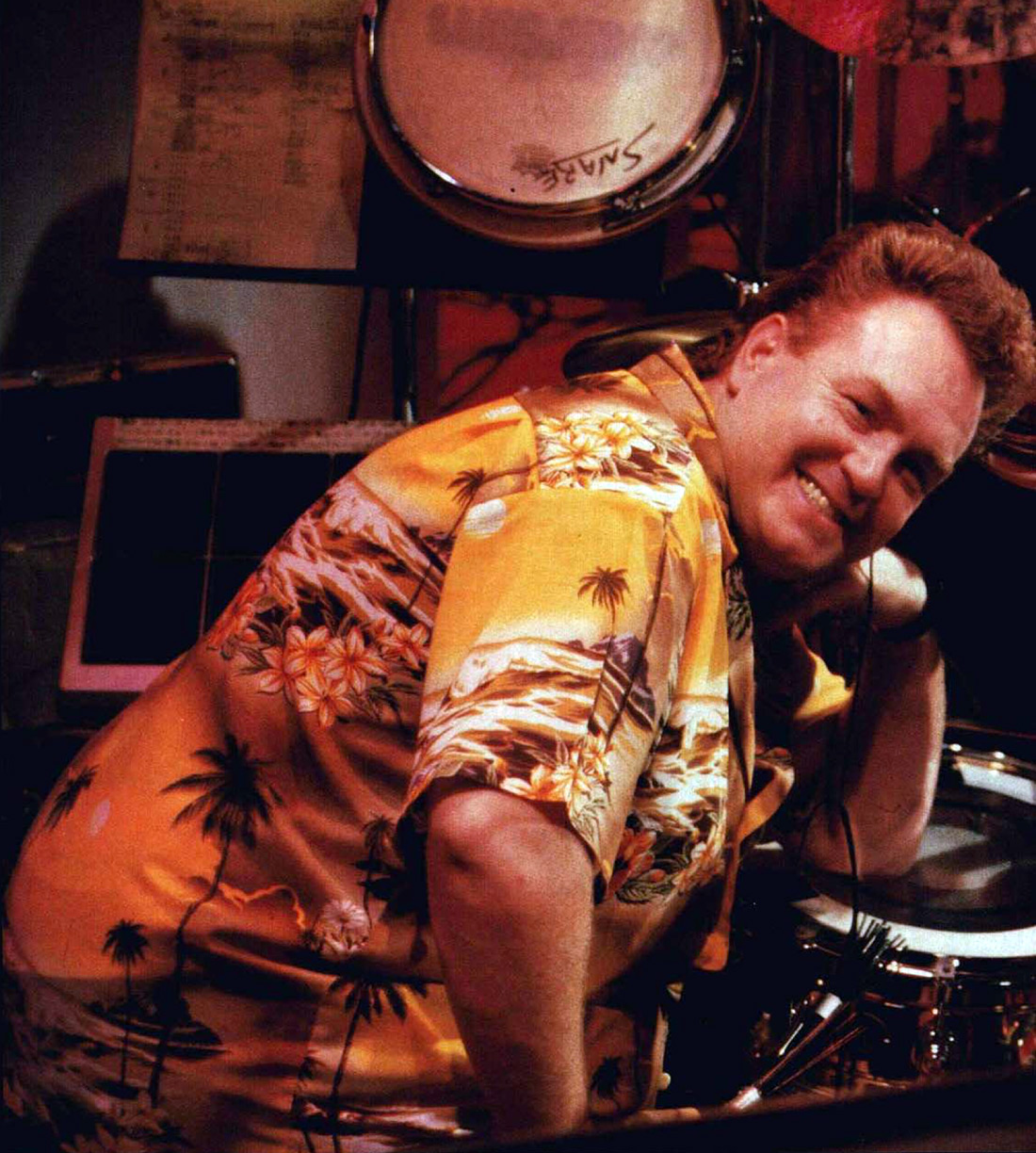
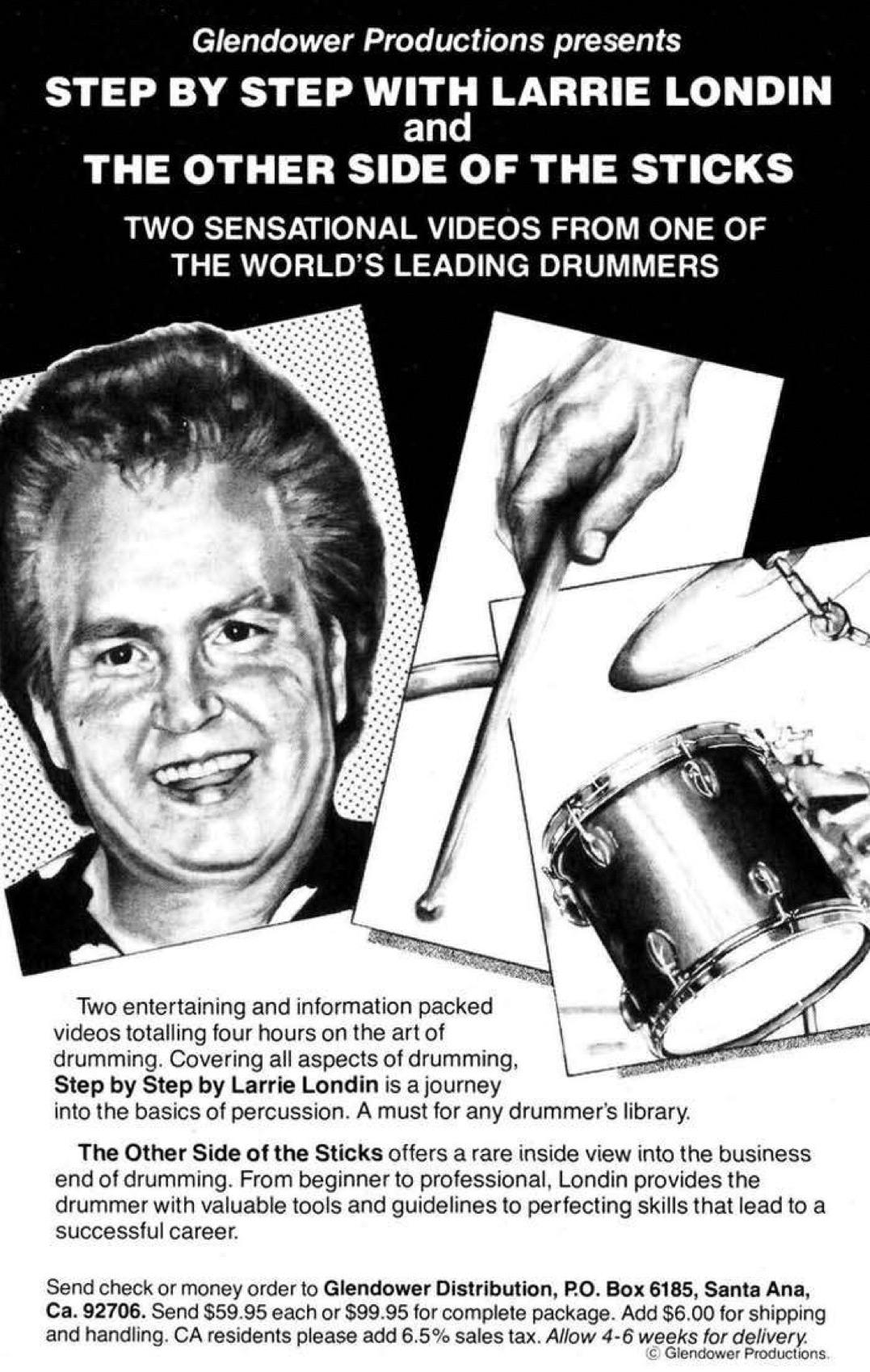
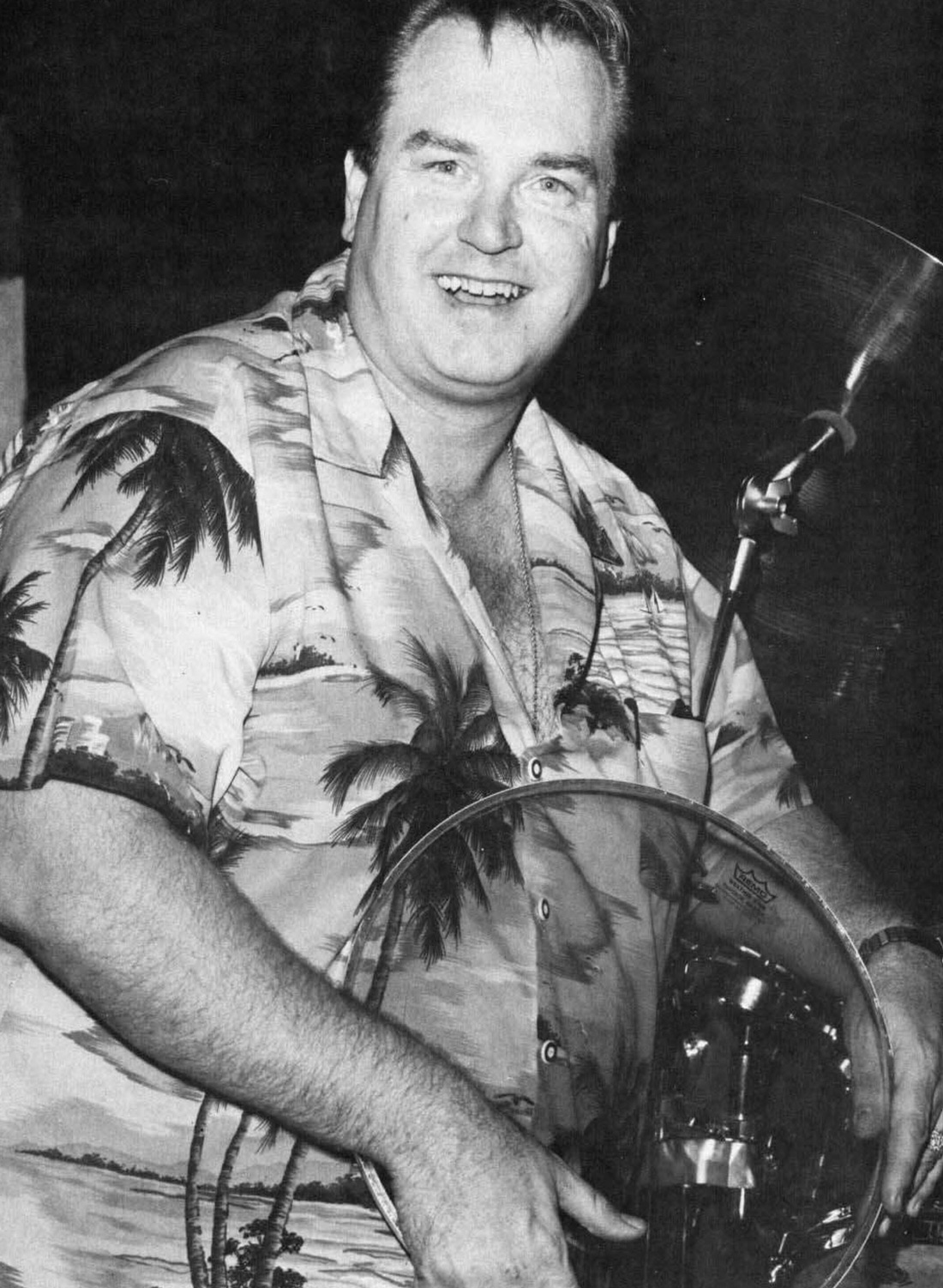
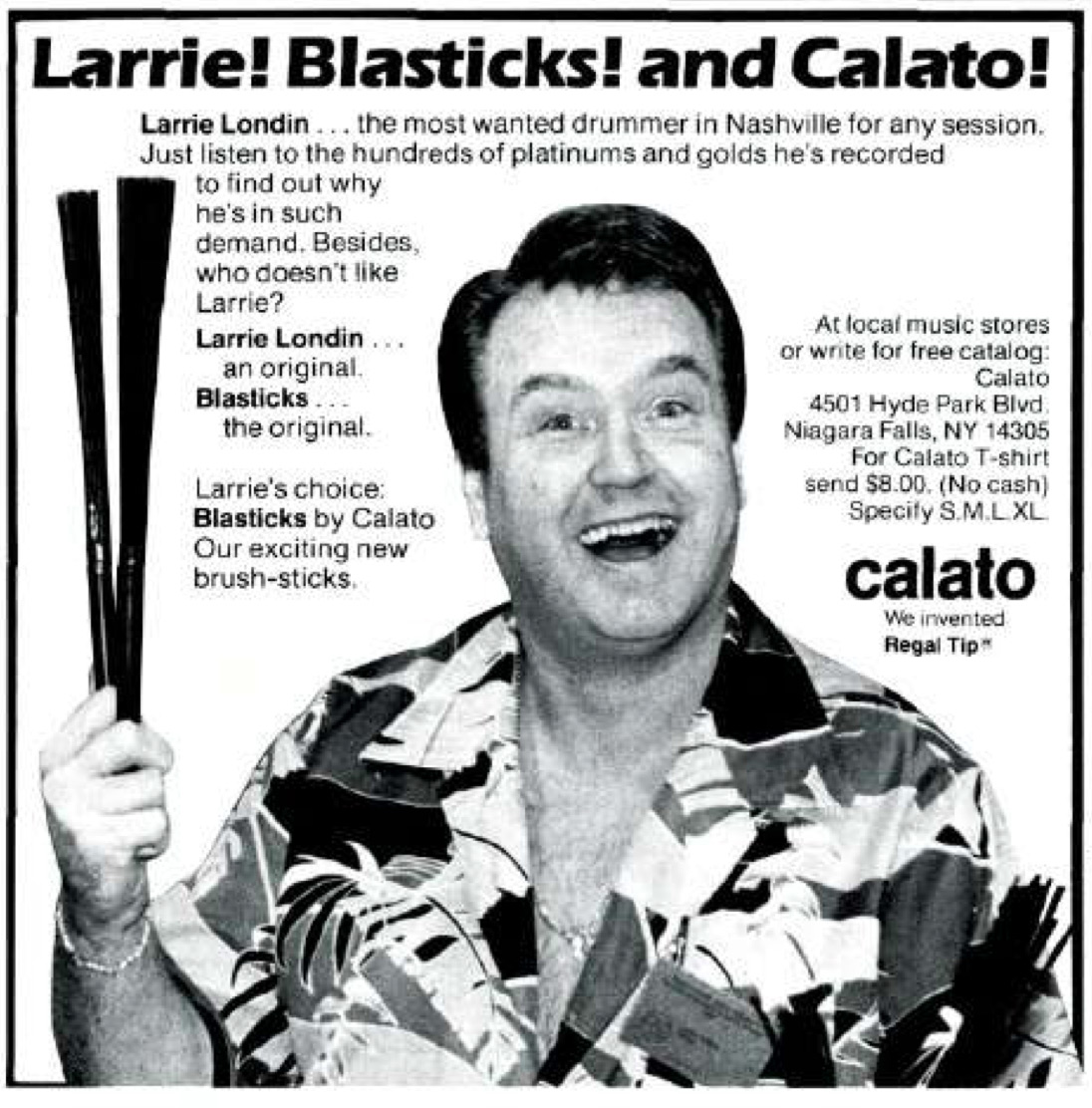
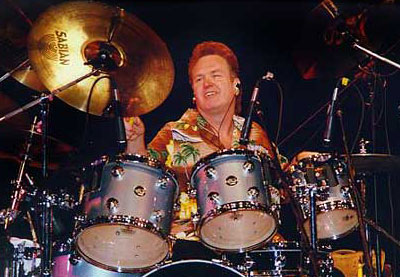
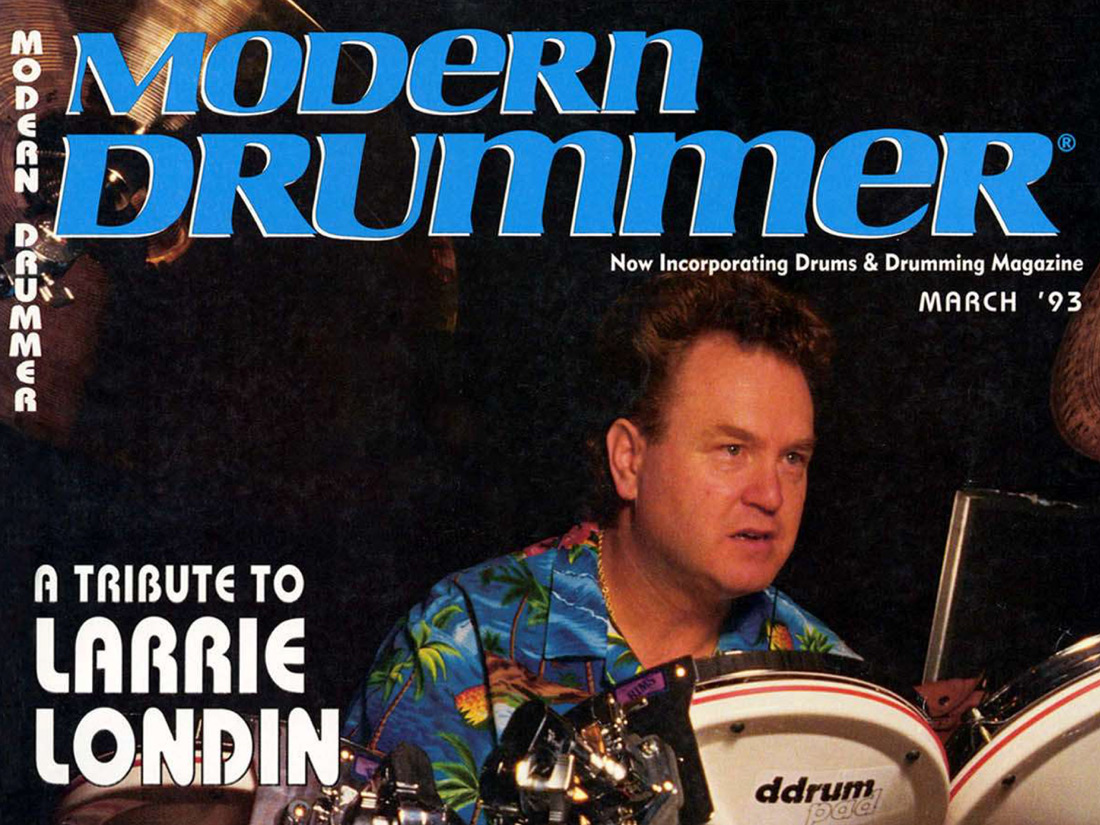
 Larrie Londin & Elvis, Charlotte, NC, 20.3.1976
Larrie Londin & Elvis, Charlotte, NC, 20.3.1976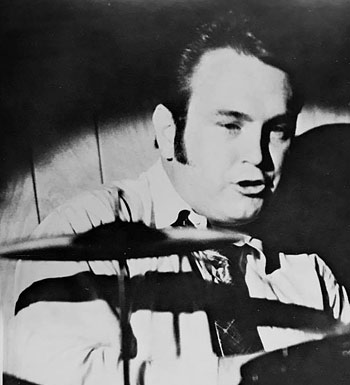
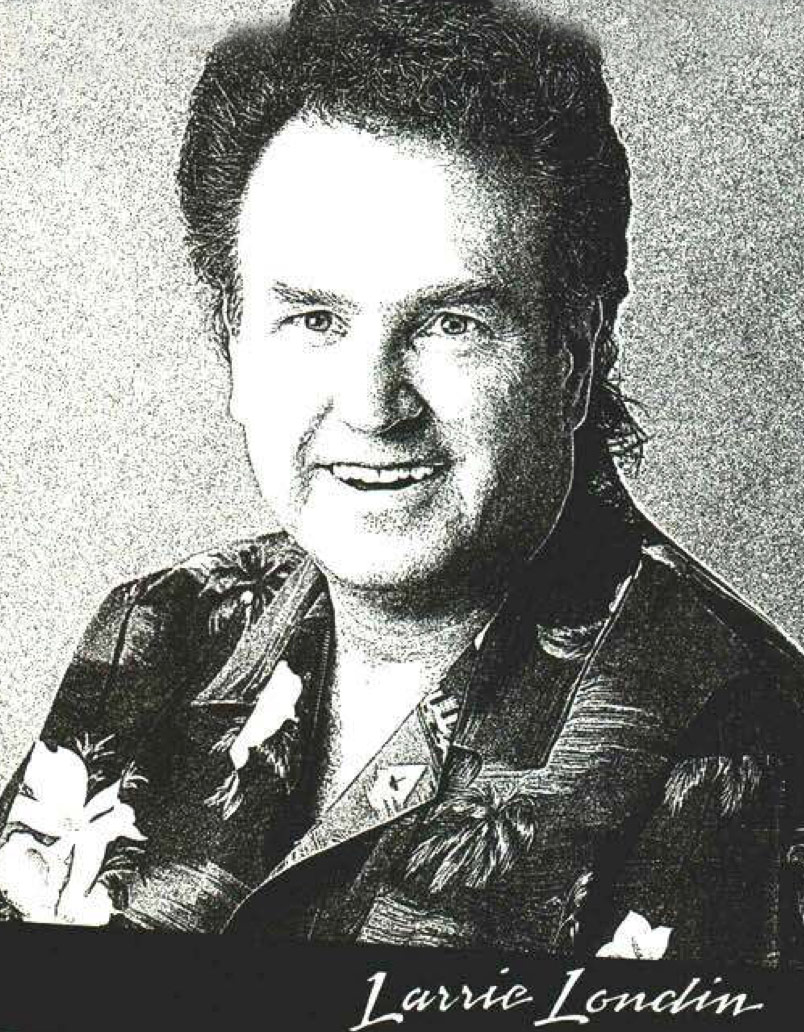
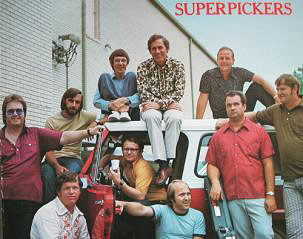 Larrie Londin, Bobby Thompson, Paul Yandell,
Larrie Londin, Bobby Thompson, Paul Yandell, Chet Atkins, Johnny Gimble, Weldon Myrick,
Pig Robbins, Jerry Shook, Charlie McCoy
& Henry Strzelecki at back of RCA's
"Nashville Sound" Studios, Nashville, TN, 1973
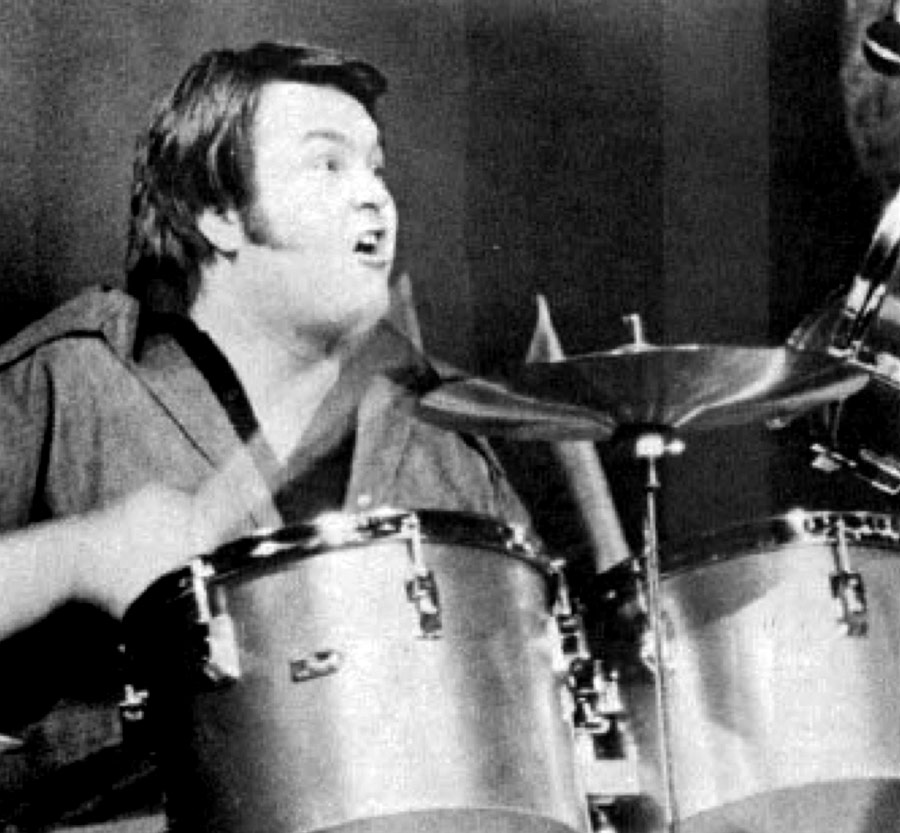
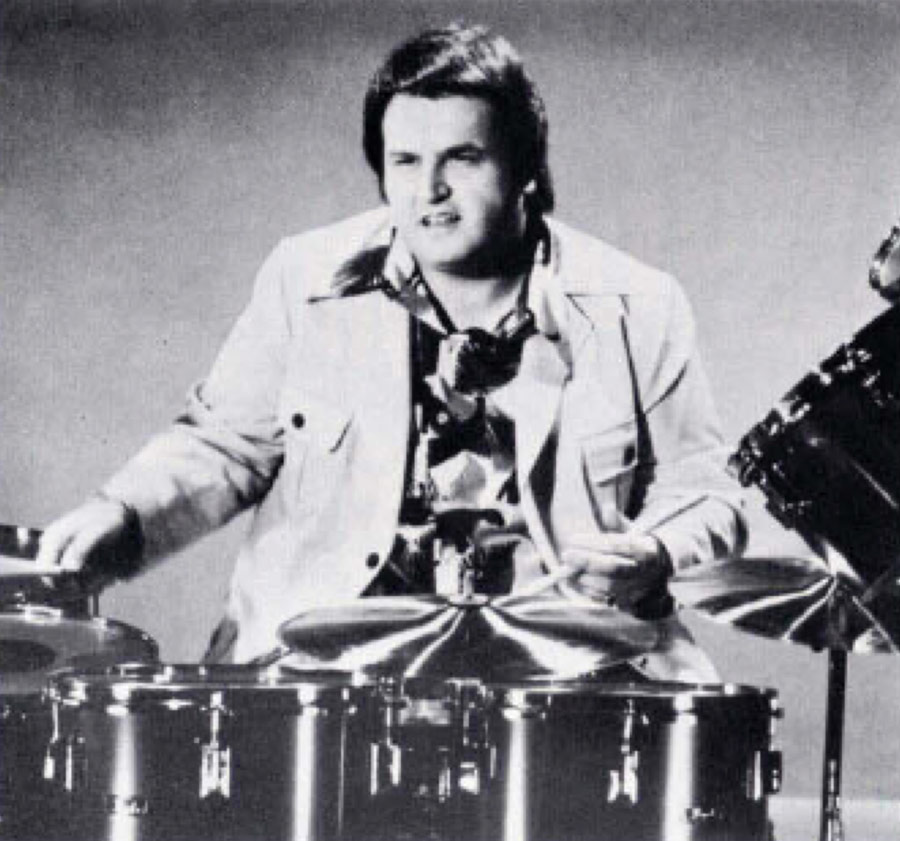
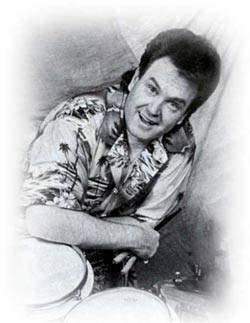 thanks for your visit!
thanks for your visit!
CLICK:
the 500 Top Drummers:
the 500 Top Drummers:



